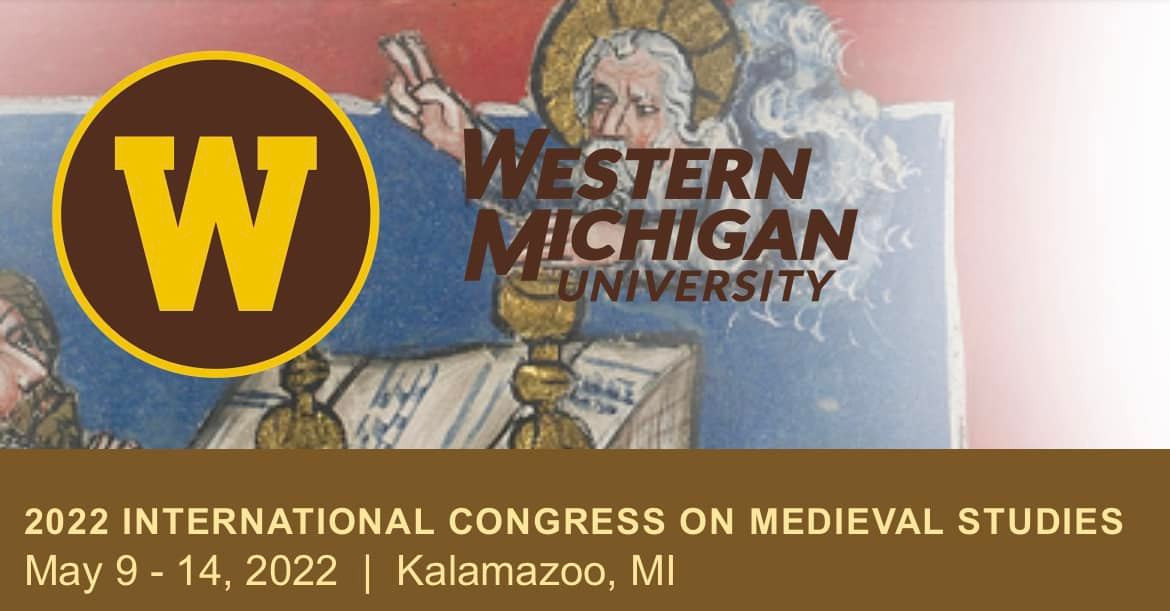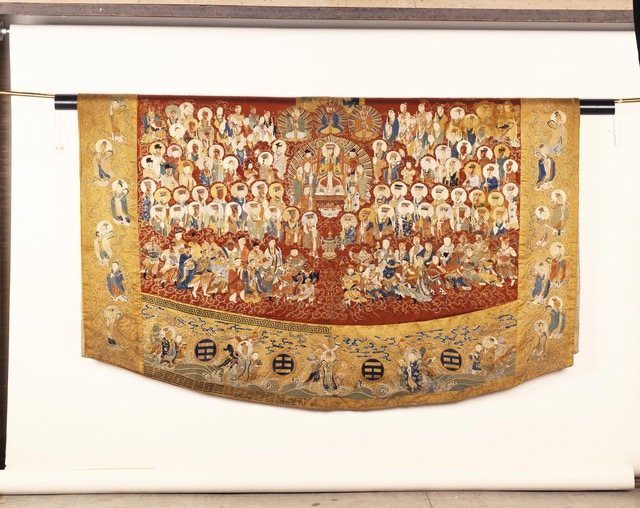BLAGO Fund at the 57th International Congress on Medieval Studies
Monday, May 9, 2022, BLAGO Fund sponsored session took place at the International Congress on Medieval Studies, the largest gathering of scholars specializing in medieval studies hosted by the Medieval Institute at Western Michigan University. Every year, the congress brings together thousands of medievalists from around the world to Kalamazoo, MI, to discuss their research and various topics from the perspective of different humanities disciplines. The same as last year, the congress took place online due to the pandemic. All the events are available on the Meeting app to the registered participants.
Our session was scheduled for the first day of the congress, and it gathered scholars from different countries and academic fields that, like ourselves, are devoted to the digital preservation of medieval heritage. The topic of our session was "Digital Methods in Preservation of Medieval Cultural Heritage: New Approaches and Technologies". We are delighted that it was well-attended and the papers and projects presented received much attention and praise. The organizer and presider of the session was Prof. Ida Sinkevic, Arthur J '55 and Barbara S. Rothkopf Professor of Art History at Lafayette College.
Considering this was the first time the BLAGO Fund participated in the Congress on Medieval Studies, we wanted to give a brief overview of our organization's work. Our associate, Dr. Ivana Lemcool, presented the first paper of the session entitled Vulnerable Treasure: Experiences in Digitization of Serbian Medieval Monuments. Mainly focusing on our work in Kosovo and Metohija, Dr. Lemcool also displayed many photographs of our team's fieldwork together with some of the most representative material from our collections.
Her presentation was followed by a fascinating virtual reality project developed at the University of Southern California. This project allows people to gain an embodied, immersive 3-D experience of pages from a Flemish Book of Hours in its original place of use. While Dr. Sabina Zonno and Prof. Lynn Swartz Dodd talked about this 15th-century manuscript from USC Libraries Special Collections and how the project came to be, Mats Borges discussed the technology behind the VR experience that enables people to virtually turn the pages of the manuscript, read the original Latin text or translations in English and Spanish, in the replicated beguinage church of Old Saint Elizabeth, listening to spatially appropriate music of the period.
You can watch the demo video recorded by Mats Borges:
The next paper was delivered by Maja Aćimović, a librarian in the Library of the Faculty of Orthodox Theology, University of Belgrade, who co-wrote the paper with Prof. Zoran Ranković, Professor of Church Slavonic and the Dean of the Faculty of Orthodox Theology, University of Belgrade. The paper summarized the results of the scientific research project of the Library of the Serbian Patriarchate in Belgrade devoted to "Research, recording, and scientific description of Serbian medieval manuscripts in foreign collections." In this project, a scientific committee of archaeologists, art historians, historians of Serbian medieval literature, Paleoslavists, librarians who deal with old and rare books, historians, and theologians, investigated Serbian manuscripts in collections in the Czech Republic, Slovakia, Hungary, Austria, Switzerland, Poland, France, and Italy.
The paper given by Dr. Stamatina Mastorakou, a Postdoctoral Fellow at the Max Planck Institute for the History of Science in Berlin, presented the image database developed within the framework of the group "Visualization and Material Cultures of the Heavens in Eurasia and North Africa, 4000 BCE-1700 CE." This unique database brings together a wide variety of objects of all kinds depicting astral knowledge produced within the working group's geographical and chronological scope. Dr. Mastorakou showcased different aspects of the database through depictions of an astronomical poet, Aratus, with the globe and his Muse Urania in medieval manuscripts, which were the subject of her research. She also presented some of the material made by the BLAGO Fund that is also included in their database.
You can find more about the database on their webpage:
The final presentation of the session was delivered by Dejan Vukelić, a doctoral candidate at the History of Art Department, Faculty of Philosophy, and Research Assistant at the Mathematical Institute of the Serbian Academy of Sciences and Arts (MISANU). His paper, written together with his colleagues Maja Novaković and Marija Šegan-Radonjić, discussed the projects undertaken by the Mathematical Institute SANU on the historic site of Bač and its surroundings, which was realized in 2018, and the digitization of the cultural heritage of Novi Pazar realized in 2020. Since both of these areas are populated by different ethnic and religious communities, the projects aimed to promote multiculturalism and strengthen the spirit of tolerance.
The relevance of digital preservation of medieval heritage, its presentation, and its presence in cultural memory has been emphasized throughout the session, in the papers, and in some of the comments of attendees. Due to the time limit given to each session, there was not much time left for the discussion. However, we are hoping that we will be able to continue exchanging ideas and experiences with our colleagues working in the field of digital humanities and also presenting the work of our organization and Serbian medieval cultural heritage.








